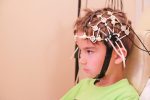Taysha Secures Licence for UT Southwestern’s CLN7 Gene Therapy
Written by |

Taysha Gene Therapies has secured an exclusive option from the University of Texas Southwestern (UTSW) to license worldwide rights to a clinical-stage gene therapy program for CLN7 disease, a form of late-infantile Batten disease.
A first-generation CLN7 therapy is currently being evaluated in a Phase 1 clinical trial (NCT04737460) run by the university, which is still enrolling patients. Top-line safety and efficacy data is expected by the end of the year.
“The CLN7 program is a strategic addition to our gene therapy pipeline,” RA Session II, president, founder, and CEO of Taysha, said in a press release. “The first-generation construct is currently in a Phase 1 clinical proof-of-concept trial with two patients dosed to date, and we look forward to the availability of preliminary data by year-end.”
Taysha is also set to collaborate with UTSW to continue developing a next-generation version of the therapy. Further program advancement is expected to enhance potency, safety, and manufacturability over first-generation therapy — initially developed by Steven Gray, PhD, at UTSW Medical Center and chief scientific advisor for Taysha — which was funded by the CLN7 patient advocacy groups Mila’s Miracle Foundation and Batten Hope.
Completion of the next-generation therapy is anticipated by year-end, with commercial-grade material expected in 2022, in time to begin a study to evaluate the advanced version.
“With human proof-of-concept clinical data to reference, we expect to advance a next-generation construct into a planned pivotal trial in 2022, which we anticipate should improve potency, safety, packaging efficiency, and manufacturability over the first-generation construct,” Session II said.
CLN7 disease is a progressive neurodegenerative disease caused by mutations in the MFSD8 gene that impair lysosomes, the compartment in cells that store and degrade cellular waste.
MFSD8 mutations lead to the buildup of waste inside cells, particularly nerve cells, resulting in seizures, speech impairment, vision loss, and motor and mental regression, with onset around 2 to 5 years of age. The CLN7 therapy contains a functioning copy of the MFSD8 gene, delivered to cells by a harmless adeno-associated virus.
The Phase 1 program is supported by preclinical data in mice lacking MFSD8. Intrathecal administration (into the spinal canal) of the first-generation therapy at the highest dose in younger CLN7 mice led to MFSD8 gene activity in all tissues examined.
Six to nine months post-injection, the mice were found to have nearly normalized their impaired open field and rotarod behavioral performance, more than doubled their median life expectancy, and maintained healthy body weights. The therapy was deemed safe and well-tolerated.
“Encouraging preclinical data generated in relevant rodent models suggest that the first-generation construct has the potential to reduce overall disease pathology, preserve motor function and ultimately prolong survival,” Session II said.
The Phase 1 open-label trial is currently underway at Dallas Children’s Hospital in Texas, and will evaluate the first-generation therapy in up to four patients, age 1–18 years. The study’s primary goal is safety and tolerability, and secondary efficacy outcomes include motor function, psychological, and quality of life assessments as well as a Clinical Global Impression measuring overall illness severity.
So far, one patient has received a low dose (5×1014 vector genomes or vg) and another got the higher dose (1.2×1015 vg). UTSW is still seeking patients for the higher dose.
“We are also pleased to announce our grant to Batten Hope, the leading CLN7 disease nonprofit patient advocacy organization, to support patient awareness, disease education, and newborn screening initiatives,” Session II said. “We believe a gene therapy approach has the potential to address a significant unmet need in an estimated 4,000 patients globally.”
Gina Hann, Batten Hope’s founder, president, and treasurer, added: “Our mission is to support families with children suffering from terminal and rapidly progressive neurodegenerative diseases like CLN7. We are honored to receive Taysha’s support to raise awareness, increase newborn screening and help patients gain access to potentially transformative treatments that offer hope and therapeutic advancement for conditions with significant unmet needs.”







